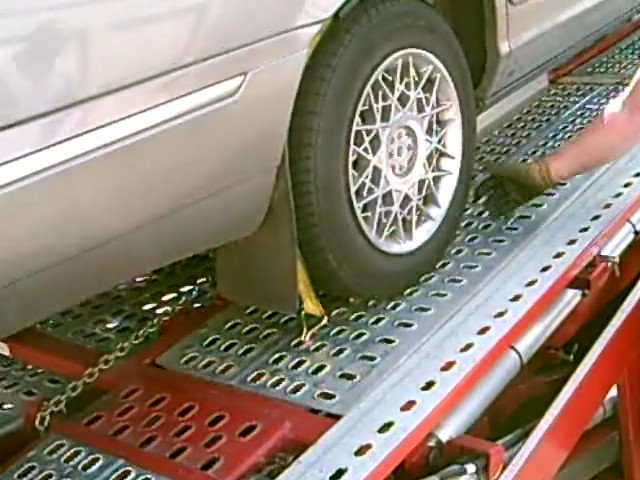Looks like the economics of auto transport have reached the point where it's starting to make sense for folks to park their trucks and cancel the insurance policy.
Car haulers have been whipsawed by rising fuel costs at the same time that auto sales have slipped dramatically, contributing to the decline in the amount of cars needing transport. Factor in the sub-prime mortgage mess and the lack of economic growth, and you can see that it may get worse before it gets better. Less general economic growth and an uncertain real estate market will mean less people moving hither and yon-- and less POV cars to haul. Folks concerned about their jobs will tend to delay big purchasing decisions. Oh yeah, and it's an election year. Plus, we're at war, with budget deficits as far as the eye can see. (And that's before the tsunami of baby boom retirees start drawing Medicare and Social Security benefits!)
Does this suck? Yes. Am I worried? No.
Everything that's happening is happening for a reason. The economy is a dynamic system, and it will always move and seek new points of equilibrium. It's already happening-- in the last two weeks, I've spoken with several people who have sold their trucks or parked their trucks. I've heard of other folks who had no choice but to let the banks take back their equipment. All of these individual actions and decisions create a total re-adjustment of the auto transport economy as supply shrinks to meet the decreased demand. At a certain point, brokers will post loads for a ridiculous price, and nobody will take them because they're already busy pulling loads that pay more. And load price will gradually rise.
The thing about business cycles is this: during good times, supply expands slowly as more people acquire the tools they need to fill the need. They're entering the market at different times. When the economy goes south, it usually does so precipitously, triggered by some unforeseen financial calamity (implosion of collateralized debt obligations due to sub-prime lending fiasco).
As people start to see "the handwriting on the wall" so to speak, what you get next is a mass exodus-- a rush for the exit as people decide (more or less simultaneously) to throw in the towel.
As an armchair economist, my suggestion is this:
If you really love car hauling, and you want to stay in this business, then now is the time to start getting really creative about growing your business... seeking ways to develop a more profitable customer base. Find out who your most profitable customers are and try to get more of them. This may mean getting out of your comfort zone and being your company's number one salesman. So be it. If you want to survive, you're going to have to do more than cruise the load boards for the next six months. If you can become an expert at marketing your business in this way, you will stand a chance to reap some big rewards once the market adjusts and there are actually less car haulers available then are necessary to move the freight in a timely manner. It will happen, trust me.
If you're not really interested in hauling cars, then this would be the time to bail. Seriously! In a rush for the exit, you want to be the first one out the door if you can... you'll end up getting more for your truck when you sell, and (hopefully) you won't have lost everything by trying to hang on. If it ain't for you, it ain't for you. And this business is not for everybody. There's no shame in declaring defeat and pulling your capital out before you lose it. That's just smart business sense. And if you'd rather do something else for a living anyway, then that just lends weight to the "Get the hell out of Dodge City" option.
Rededicate yourself to prospering in this business, or sell your truck. Those are the only options that make any sense. It's going to be an uphill grade for at least the next 6-9 months, and nobody is going to coast their way into easy money.
Subscribe to:
Post Comments (Atom)


2 comments:
I think you are exactly correct and if you choose to stay in I think a long look at your overhead and trim if possible to be as lean and efficient a company as possible will be the way to be one of the companies that make it through.
To which I would add the word: discipline. Not all business is good business. It takes a certain amount of discipline to say "NO!" to bad business (i.e., stuff that doesn't pay your bills.) as well as discipline to make yourself get up in the morning and spend time being Chief Salesman for your company-- hustling for the Good Business that still exists here and there.
Post a Comment